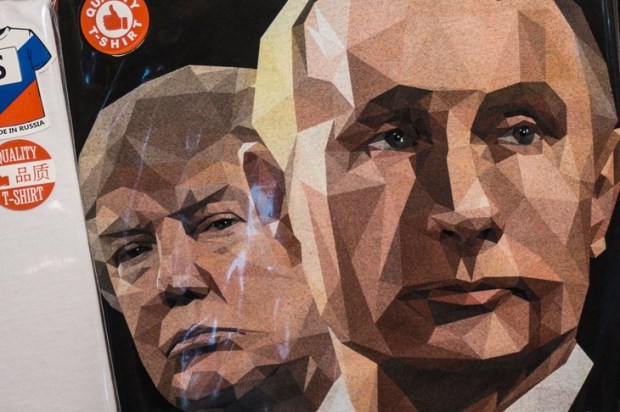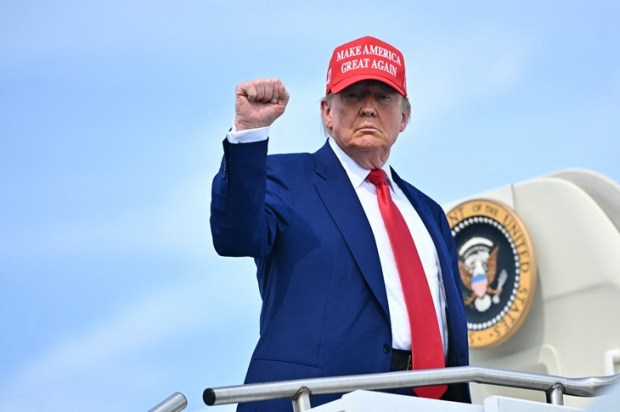Xi’s recent three-day visit with Putin in Moscow brought with it several takeaways.
China and Russia are deepening their relationship on multiple levels – security, economics, energy, politics, science, technology, manufacturing, space, and health, to name a few. This means that US policymakers do not have the luxury of separating the threats of China and Russia due to both men’s ‘no limits’ friendship.
This new reality is a flashing red-light warning to American lawmakers who argue for withdrawing support for Ukraine in return for a pivot to the Pacific to focus solely on China, in other words, the Ukraine-Russia and Taiwan-China challenges are not disconnected.
Some argue that the Biden administration ought to have pursued a more strategic diplomatic approach to Russia and China that would seek to drive a wedge between the two powers.
In an effort to isolate China, President Biden tried to establish a positive relationship with Putin at their meeting in Geneva in June 2021. The gambit failed. This was followed by the disastrous US withdrawal from Afghanistan two months later, which many say emboldened Putin to pursue his imperial aims in Ukraine.
Amid this reality, the US is now confronted with a combined and united threat of Xi and Putin, two autocrats whose opposition to political and human rights presents a dark vision for mankind.
More pointedly, Washington faces a strong Xi Jinping who is increasingly challenging the US-led global order and supporting a faltering Vladimir Putin.
The March 20-23 Moscow summit also revealed another dynamic taking place. Xi and Putin are trying to strengthen themselves against a united West. Both men are working to build an anti-Western, authoritarian bloc consisting of their respective countries along with Iran and willing members of the Global South.
Xi’s and Putin’s embrace is an attempt to communicate to the world that their countries are not isolated but are part of a powerful coalition of states which do not need the West or share its values.
In Xi’s case, he is focusing on the containment measures being implemented by the US, its allies, and partners. The Quad, the Aukus alliance, new American military bases in the Philippines, steep hikes in Japanese defense spending, and efforts by Seoul and Tokyo to set aside their differences and present a united front against China have left Beijing concerned.
On the messaging front, Beijing contends that it is not like Washington and its allies. New Foreign Minister Qin Gang has asserted that China does not start wars and that the US is in no place to demand that the CCP refrain from arming Ukraine while American weapons are heading to Taiwan.
All this despite Xi not making any pledges while in Moscow to supply Russia with lethal aid for its war in Ukraine.
During the summit, Xi continued his choice refrain that the US is in inevitable decline and that China is rising as the world’s transcendent power, stating to Putin, ‘Change is coming that hasn’t happened in 100 years. And we’re driving this change together.’
Amid these developments, China is closely watching Russia’s economy thus far successfully weather the storm from international sanctions. In particular, China’s and India’s massive purchases of discounted Russian oil have kept Putin afloat and allowed him to finance his war in Ukraine.
With a future invasion of Taiwan in mind, Beijing has likely concluded that maintaining close ties with powerful friends is vital for surviving the economic hard times associated with the punitive financial sanctions that the West often employs.
However, China is trying to have its cake and eat it, too. Its trade with the US and European Union amounts to ten times more than its trade with Russia ($1.6 trillion as opposed to $190 billion). Up to now, China has not overstepped the boundary of providing weapons to Russia for fear of jeopardising its lucrative commercial ties with the West. We do not know for how much longer China will walk this line of supporting its partnership with Russia while not providing a lifeline to Putin’s war machine.
Yet the Moscow summit showed that Xi is happy to provide rhetorical support for Putin. In his public statements, Xi did not urge Putin to end hostilities in Ukraine, nor did he call for Ukraine’s internationally recognised borders to be respected.
While portraying himself as a peacemaker, Xi’s 12-point plan for peace in Ukraine called for a cease-fire without the removal of Russian troops from occupied Ukrainian territory.
In their joint public statements, Xi and Putin engaged in an exercise of twisted logic. Xi asserted that his peace plan upholds the central tenets of the United Nations Charter which states that member states should abstain from using force ‘against the territorial integrity or political independence of any state’.
Putin also appealed to the UN Charter, arguing that it has been Russia and China who have been victimised by the West and that both powers are committed to advancing democratic values worldwide.
Both arguments are contrary to the reality that Moscow started the war with its invasion of Ukraine and that Putin’s actions do not uphold UN principles but subvert them.
It also shows that the Chinese peace plan is a non-starter and that Xi’s failure to consult Ukraine – despite expressing an openness to contacting Zelensky – destroys his credibility as an honest broker.
According to Washington Post columnist David Ignatius, Xi’s diplomatic venture in Moscow gives him the space to resort to offering ammunition to Russia in the name of levelling the playing field if Ukraine turns down the cease-fire offer. Mr Ignatius writes that Xi is attempting to maintain the high ground of appealing to the UN Charter while at the same time supporting Mr Putin.
The recent Moscow summit further indicates Xi is in a global contest for power with the United States. Part of this involves a chess game of forcing the US and Nato to expend efforts aiding Ukraine in the hope that it weakens their focus on China.
To put it another way, helping Putin finance his war machine furthers Xi’s goal of dividing the West’s attention and resources that could otherwise be used to help Taiwan protect itself and invest in deterrence measures in the Pacific.
The Moscow summit also demonstrated the increasing inequality in the China-Russia relationship, with events of the past year accelerating Russia’s dependence on China.
While the details of the several agreements signed between the two countries at the summit were not made public, it is likely that Xi locked in an advantageous deal to strengthen China’s long-term hold on Russian energy and minerals. This would be in keeping with past practice when Xi pledged to buy Russian oil after Russia faced international sanctions for its 2014 annexation of Crimea.
These commercial agreements are not platonic gestures towards Putin, but rather they give China a leg up over Russia in the long term.
More broadly, the Moscow summit demonstrated Xi’s and Putin’s belief in the need for a new international order that is strong enough to resist what they allege as being US-led Western unilateralism.
Fresh off the agreement he brokered reestablishing diplomatic relations between Saudi Arabia and Iran, Xi is trying to reshape the world to make it more conducive and compliant to his authoritarian vision. While some may argue that it is only natural for rising powers to seek arrangements favourable to their aspirations, Xi’s hostility to democracy and human rights is severe and grim.
The human condition will be in a far worse place if the vision championed in Moscow last week is realised.
Ted Gover, Ph.D., is Associate Clinical Faculty at Claremont Graduate University in Los Angeles.

























